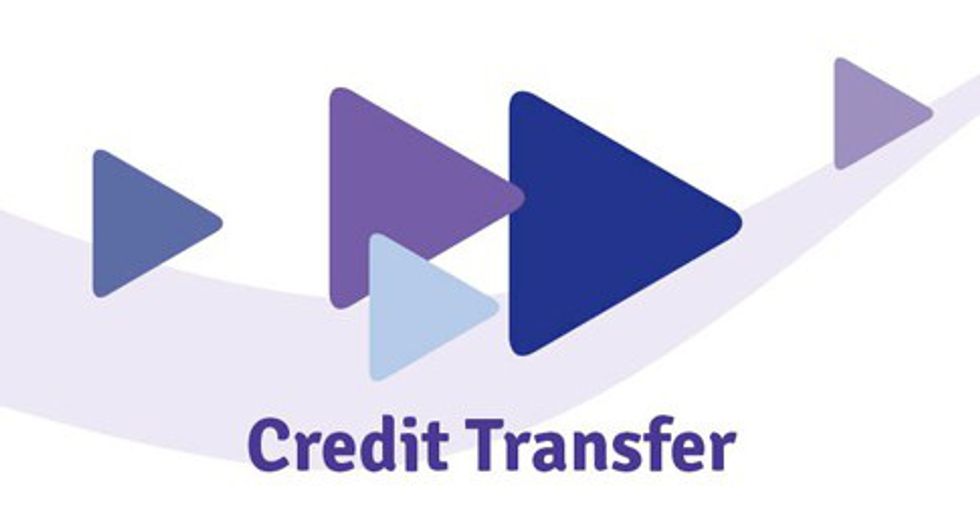I’ve taken four online summer courses so far, each incredibly different from the last. I had no idea what to expect and here are a few things I wish I’d known, and want other people to know. Never underestimate a class, and never overestimate yourself. Every individual is different and needs a certain environment to excel. What’s good for one person may not be good for you, and that’s OK. Don’t force yourself to take a class you hate for the sake of convenience. It’s not a race and it’s OK to need to sit in a classroom an hour a day if that's what you need. The biggest message from this article: every class is different, so know what kind of student you are and what you want.
1. Online courses might be the cheaper option.

2. Money isn’t the only requirement.
Congratulations, you saved enough to take an online class! It’s implied, and rather obvious to some, but do you have the dependable resources to actually take the class? The blackboard app on your phone will not suffice, and an unreliable, outdated computer won’t do the trick either. You don’t want to be in the middle of taking a timed exam, have your computer freeze because the internet is going out, and then refresh the page to find your new zero in the grade book. Even if you have topnotch equipment, have emergency alternatives. Online professors will not care, or even believe that your laptop broke, or that your power went out. A 24-hour library/computer lab, or even a nearby McDonald's, will have to do if Wi-Fi is wigging out close to a deadline.
3. Decide how important this class is.

4. Online classes aren’t always easy A’s.
No matter what class you’re taking or where or how you take it, it’s still college. It’s still work. Easy work is not guaranteed, and because there are no lectures or face to face interaction, classes may be even harder. Emailing professors or fellow classmates a question is always an option, and encouraged, but there’s no guarantee anyone will get back to you. Patience and consideration are necessary virtues considering your classmates and professors are just as busy as you are. Not only is it the content of the work, but the sheer quantity of it. Many online courses, especially summer courses, can have a very heavy work load and be a much faster pace than you’re used to. I took two online summer courses and I turned in a quiz once a day, a discussion every other day, read three chapters a week, turned in a test and project once a week, and then my final was a five page paper. Just because I did not go to class everyday did not mean I did not work every day. It won’t be as hectic during a full semester, but still consider what subjects you’re weakest in and avoid that class because you will not always have a support group to help you.
5. Your interactions with classmates may vary.
Not going to campus does not always mean being cut off from the world. Roughly 20 other students are still taking that class with you and it’s up to you to make those connections! If you do not reach out and form a study group (yes, it’s still possible with face time and group chats!), you will most likely feel completely alone. That makes it much harder if you get a bad grade because you can’t look around you and compare your progress to others. I had one history class where everyone, including the professor, was radio silent. Then I took an art appreciation class where we all talked daily and even became friends because of how much we helped each other. Some people like the solidarity that comes with online classes, but don’t just assume other students are unreachable.
6. Interactions with professors may vary.
If you think it’s hard to get in contact with other students, then prepare to deal with the possibility of never speaking to your professor. The keyword in distance learning is distance, as in some professors want to distance themselves far away from you. Some professors post regularly, provide feedback, and email you back within the day, but don’t expect that. Again, ratemyprofessor.com is a godsend! It’s a great way to look up reviews on the teacher and learn about the structures of the class. If you don’t trust the student’s reviews, or don’t find any, email the professor before signing up for the class. Get the word directly from the source to find out what is expected of you. Also, seeing how long it takes for him or her to reply is a good future reference.
7. You may still have to go to campus.

8. You have to be self-motivated.
The best classes for me have all the information, quizzes, tests, and PowerPoints up on the very first day. There is only one deadline – the day the class ends. It’s completely up to me to pace myself and not procrastinate. The online class I’m in now has 13 quizzes, 12 assessments, three discussions, three unit exams, and the final. Looking at the syllabus, 32 things all at once can seem overwhelming, but I love working without deadlines. Others, however, need structure. Most professors have weekly assignments and a very tight schedule for reinforcement. Think to yourself if you work best doing everything in your own time, or if you need to have a pattern. Regardless of when the assignments are due, no one will be there to remind you of a test coming up. It’s your job, and your job alone, to get it all done in a timely manner.
9. Will you be taking all your courses at this college?
If not, make sure that the class you are taking will be transferable to another university. Not all classes are created equal and some university's standards are higher than others. Try checking out the CRN numbers for the course at both universities online. If it's transferable, the course numbers should match. If navigating through the school websites and degree plans is a bit much for you, feel free to call the school.
10. Every class is different.
If I haven’t stressed this enough by repeating the words “vary” and “depending on the…”, here it is again. There is no telling how the class will be, how the professor will be, or how you will be in an online class. The only way is to contact the instructor, ask lots of questions, and then be honest with yourself. The biggest issue is knowing yourself and what you can handle. Are you the kind of person to drive a conversation and have witty banter with the professor, or would you rather read through a book and speedily get through the lesson? Do you like structure, or is your life too busy to turn in assignments every Wednesday at five on the dot? Are you an auditory learner who needs lectures, do you need to see your professor teach, have hands on assignments, or do you just need time and space? Whatever your learning style is, there is an environment out there for you to thrive in. You must simply take the time to find it.








































